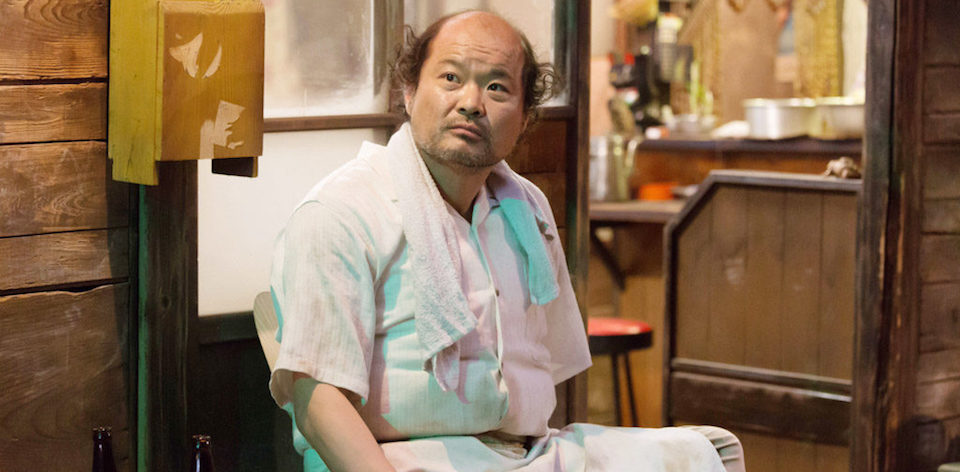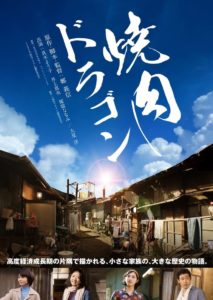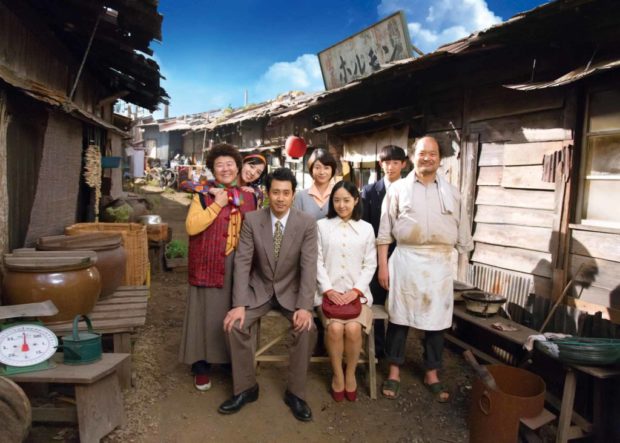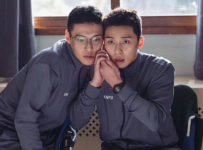“I hated this town,” comes the voice of a soon-to-be-introduced narrator as we pan over a shantytown somewhere in Japan’s Kansai region. Yet it’s with a mixture of fondness and nostalgia that Wishing Chong begins the adaptation of his own award-winning play.
Chong’s film focuses on the dreams and ambitions of a Korean family living in Japan, known broadly as ‘Zainichi Koreans.’ The term refers to visitors who are “staying in Japan.” Yet for Chong, a third generation Zainichi, it speaks to the state of permanent ‘otherness’ experienced by multi-generational migrant families.
Set over the course of several seasons in the late 1960s and early 1970s, we are introduced to Yong-Gil (Kim Sang-Ho) who runs the Yakiniku Dragon restaurant. A Korean ex-pat who lost his arm while fighting for the Japanese army, he now resides in Japan with his wife Young-soon (Lee Jung-Eun) and his three daughters: Jung-Hwa (Yoko Maki), middle daughter Yi-Hwa (Mao Inoue) and youngest daughter Mi-Hwa (Nanami Sakuraba).
There’s a number of concurrent storylines happening in YAKINIKU DRAGON, and there’s almost too much going on in a compact space. The older sisters are in a romantic rivalry, while the youngest sister has an affair with a married man. Younger brother Tokio (Shinpei Ooe), who seems to have stopped speaking, struggles with bullying and his father’s pressure to attend a Japanese private school. Yet all of this is about the strength of a family in the face of adversity, even if there’s enough drama to fill a soap opera.
It’s actually surprising how much intensity there is to the drama. A drunken holiday brawl, for example, is as real and uncomfortable as it is comical. It comes, of course, from a tangible connection to Chong’s past. The acclaimed writer and first-time director Chong has openly stated in interviews that he grew up in a “shack built on top of the wall” of Himeji Castle. Here the family is by an airport, but in either case they are transitory places of tourism.
The single-mindedness of Kim Sang-Ho’s fierce performance as the family’s patriarch evidently comes from Chong’s own father as well. Where the off-screen counterpart was a military cop, touched on in Chong’s play Like a Flower Blooming on the Moor, both father figures share military service and an unwavering devotion to their adopted country. It’s only when the government wants to reclaim the land he is squatting on that he questions his loyalty.
While using a heavy amount of CG to portray the period and the extent of the shantytown, Chong’s directorial style and static locations occasionally betray the story’s stage origins. Yet it’s filled with terrific performances, especially from Kim Sang-Ho, and some surprisingly powerful moments.
 2018 | Japan | DIR: Wishing Chong | WRITERS: Wishing Chong | CAST: Yoko Maki, Mao Inoue, Nanami Sakuraba, Kim Sang-Ho, Lee Jung-Eun, Shinpei Ooe | DISTRIBUTOR: Kadokawa Pictures, Phantom Film (JPN), Japanese Film Festival (AUS) | RUNNING TIME: 126 minutes | RELEASE DATE: October – December 2017 (JFF)
2018 | Japan | DIR: Wishing Chong | WRITERS: Wishing Chong | CAST: Yoko Maki, Mao Inoue, Nanami Sakuraba, Kim Sang-Ho, Lee Jung-Eun, Shinpei Ooe | DISTRIBUTOR: Kadokawa Pictures, Phantom Film (JPN), Japanese Film Festival (AUS) | RUNNING TIME: 126 minutes | RELEASE DATE: October – December 2017 (JFF)






